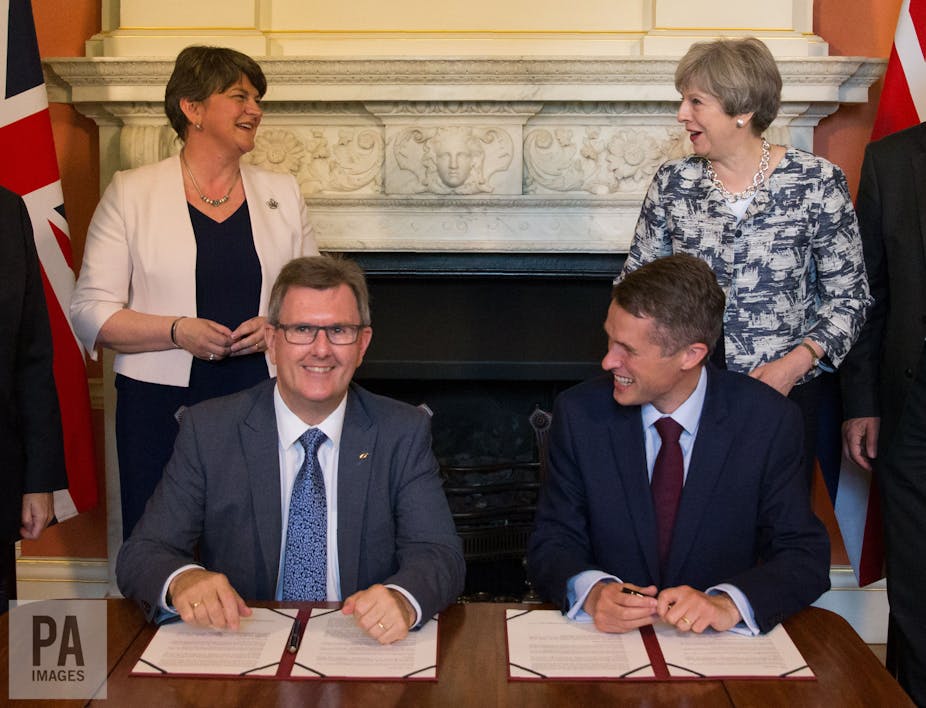So now we know the cost of the Democratic Unionist Party’s support for the Conservative minority government – £1 billion. Money well spent in an age of austerity when the pressures on doctors, teachers, police officers, mental health support workers and many others are intense? No.
But forget about the bridges, barricades and Barnett Formula for a moment. Ignore the bleating of the other parties. The biggest cost of the Conservative–DUP deal cannot be measured in pounds and pence. The true social cost of this crudest example of pork-barrel politics is likely to be heightened levels of anti-political and anti-politician sentiment in the UK.
This is not a partisan point. I am not a member of any political party. But there is something particularly vulgar about this deal. It is the old “spoils system” reincarnated at a time when political apathy and anti-political sentiment is already threatening to overwhelm the system.
Seasoned Whitehall watchers will no doubt dismiss me as young(ish) and naïve to think that any leader in Mrs May’s position would not have engaged in a similar process of political bargaining.
However, having spent almost a quarter of a century studying what happens in Westminster, I am well aware of the rocky reality of politics. As director of the Sir Bernard Crick Centre for the Public Understanding of Politics, I am familiar with our namesake’s plea: that scholars understand why democratic politics tends to be inefficient, cumbersome and frequently delivers “sub-optimal” decisions.
But the Conservative’s blatant purchase of a “confidence and supply” voucher from the DUP is completely different to the internal compromises, negotiations and deal-making that oil the day-to-day business of governing. It is the purchasing of power at a potentially mighty cost to democracy.

The problem is that this pork really stinks. It is public money badly spent for partisan purposes. Badly spent because even with the support of the DUP’s ten MPs, Mrs May’s governing capacity will still be far from “strong and stable”.
Badly spent because what she buys with one hand from a socially conservative cabal she risks immediately losing by alienating her socially progressive Scottish Conservative MPs. Badly spent in terms of her party as it looks like they have suddenly found the “magic money tree” that formed the focus of their venomous attacks on Jeremy Corbyn just weeks ago. But most importantly, badly spent for the price such a deal will place upon public confidence in democratic politics, politicians and political processes.
Purchasing power
As the UK’s only professor for the Public Understanding of Politics, how am I supposed to explain this situation to young people in South Yorkshire, South London or South Shields in any other terms than “a bung”? How do I build confidence and belief in democratic politics when the prime minister engages in practices that seem mired in rotten boroughs, snouts-in-the-trough and sleaze? In the 21st century, how can we have a system that allows the purchasing of power in such an explicit manner?
My worry is that after a general election that was to some extent defined by the re-engagement of large sections of society who had previously been disengaged and anti-political, we now have a situation that is almost designed to fuel disaffection.
People are already asking me, “What kind of democracy is this?” And I’m just not sure how to respond. It is a billion pounds of shame.

